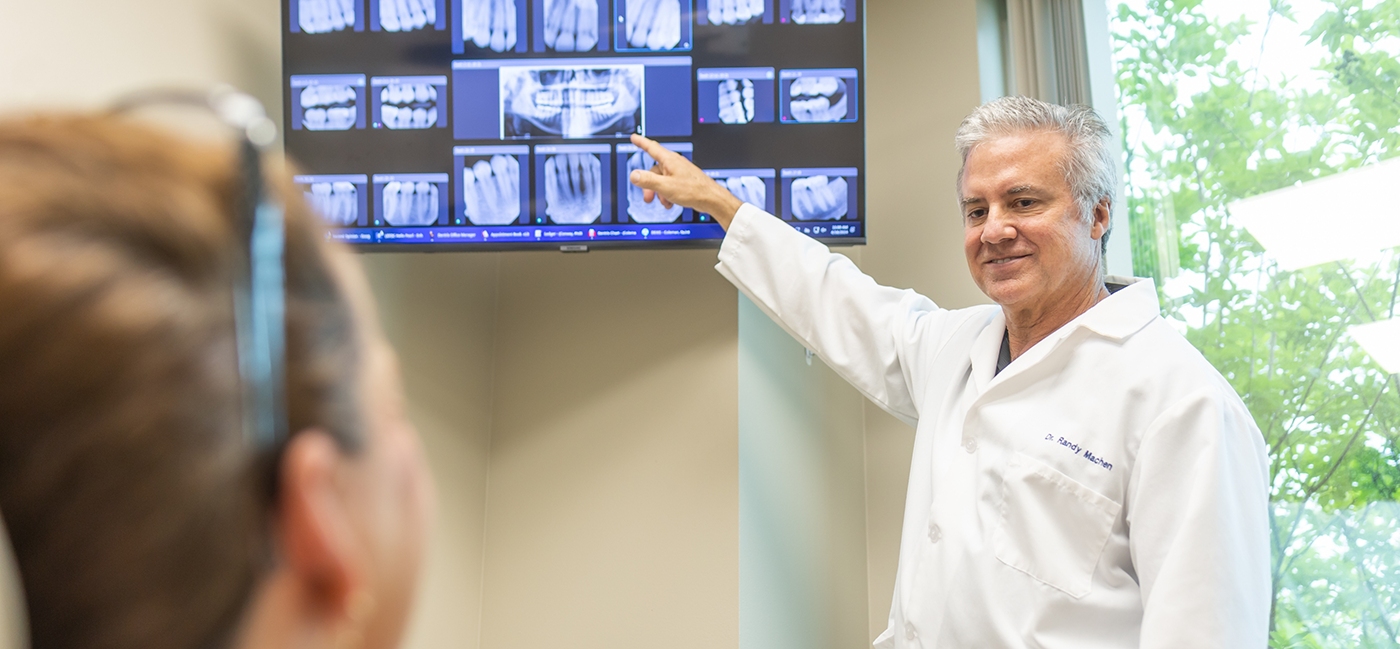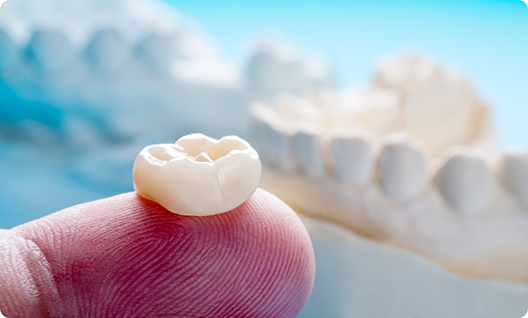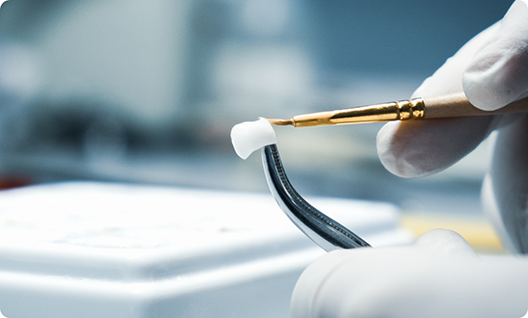@LITTLEROCKFAMILYDENTALCARE
Follow Us On InstagramDental Crowns Little Rock
Save Compromised Teeth with Quality Dental Crowns

Your teeth are incredibly strong, but they aren’t indestructible. There are many ways that your teeth can become damaged, such as poor oral hygiene, a sports injury, or an accident. However, if you have a tooth that becomes compromised, it is left vulnerable and is likely to be further harmed in the future. You could even end up with a serious dental emergency and need to have it extracted. The good news is that our team at Little Rock Family Dental Care can save compromised teeth with quality dental crowns to keep your smile safe going forward. To learn more about dental crowns in Little Rock or to schedule an appointment with us, give us a call!
Why Choose Little Rock Family Dental Care for Dental Crowns?
- Saturday Appointments Available at Our West Location
- Multiple Dental Specialists on Staff
- We Provide a Complementary Benefits Check Before Your Arrival
What is a Dental Crown?

A dental crown is a custom-crafted cap that is made to fit over the biting surface of your damaged or weakened tooth above the gumline. This restoration can be made from a variety of different materials, including gold, ceramic, and porcelain. Dental crowns are oftentimes recommended for patients who are dealing with the following dental issues:
- Severe decay repaired with a large filling
- Broken tooth that needs additional support
- Tooth that has received root canal therapy
- Missing tooth that is being replaced with a dental implant
- Dental bridge that needs support from the adjacent tooth
- Tooth that is severely misshapen or discolored
The Process of Getting a Dental Crown

Having a dental crown placed is a relatively straightforward process that can usually be completed in just two simple appointments. This usually takes place over just a few appointments to give you the perfect results that you’re looking for. First, we will examine your smile to ensure that a dental crown is the best possible solution for your oral health. Your tooth will be prepared by having a thin layer of enamel removed from it to make room for the crown. Next, an impression is taken and sent to a dental laboratory where your crown will be made. Until your crown is ready, you will be given a temporary one. This way, your tooth will remain protected, and you will be able to get used to how your new crown will feel.
The Benefits of Getting a Dental Crown

Dental crowns provide numerous benefits. Here are just a handful of them:
- Increased comfort
- Improves your ability to chew
- Prevents additional dental problems
- Can last 15+ years with proper care
- Appears natural
Understanding the Cost of Dental Crowns

Dental crowns work by building up and protecting damaged teeth from additional harm. However, many people put off treatment because they are worried about the cost. During your consultation, we will discuss the estimated cost of your treatment in detail so that we don’t run into any surprises. Until then, here are some things to keep in mind.
Factors that Affect the Cost of Dental Crowns

There are multiple factors that contribute to the cost of dental crowns. Here are the most important ones.
- Damage: If your tooth is significantly damaged, you may need another treatment in addition to your dental crown to repair it. For example, if you need root canal treatment in addition to a crown, you should consider this cost as well.
- Materials: Dental crowns can be made of multiple materials, each with their own price point. We use gold, ceramic, and porcelain depending on where the tooth is located in the mouth.
Does Dental Insurance Cover Dental Crowns?

Generally, dental crowns are considered to be a major restorative procedure. This means that they are covered up to 50% after the deducible has been met if deemed to be medically necessary. However, every plan is a little bit different, so it is best to review your benefits ahead of time so that you know what to expect. At Little Rock Family Dental Care, we gladly accept most PPO plans. We will handle the paperwork and file your claims!
Options for Making Dental Crowns Affordable

If you don’t have dental insurance, this doesn’t mean that you are completely out of luck. We are happy to accept payments through CareCredit – a third-party financing company that can split the cost of your treatment into manageable monthly installments with little to no interest. If you have any questions or need help applying, we would be happy to assist you!
Dental Crowns FAQs
Are dental crowns permanent?
Dental crowns are a long-term solution that can protect your teeth from infection and injury for five to fifteen years on average, but they cannot be considered permanent since they will eventually need to be replaced. However, the process of placing a dental crown is irreversible since it involves the removal of damaged enamel to make room for the restoration. Since removed enamel does not grow back, the tooth will need to be protected by a restoration from then on, and dental crowns can shelter compromised teeth from damage and infection so they can last much longer than they would otherwise. You can keep your dental crown in excellent condition for as long as possible by practicing excellent oral hygiene, visiting our office in Little Rock for regular exams and cleanings, wearing a nightguard or athletic mouthguard as needed, and limiting your sugar consumption.
How long do dental crowns last?
Dental crowns last somewhere between five and fifteen years on average, but the actual lifespan of your restoration mostly depends on the material it is made from and how well you take care of it. While metal crowns may have longer lifespans than metal-free restorations, the difference may only be negligible. You can help your crown last for as long as possible by making smart eating decisions, adhering to an excellent at-home oral hygiene regimen, seeing us regularly for routine exams and cleanings, and breaking bad habits like smoking, teeth grinding, and chewing on ice, your nails, or inedible objects like pencils. Crowns placed on the front teeth may last slightly longer than those placed on the molars since they do not endure as much pressure during chewing.
How do you know if a dental crown needs to be replaced?
While only a qualified oral health professional can make a definitive call as to whether your crown needs to be replaced, there are a few signs that can tell you that you should have one of our dentists inspect your restoration. A few of these include:
- Pain: If the tooth wearing a crown becomes decayed, the restoration must be removed so the infection can be treated. Afterward, our dentist can determine if your crown can be fixed back on the tooth or if it needs to be replaced.
- Instability: If your crown is wiggling about on its tooth, the cement holding it in place may be compromised. Let us know if your restoration is not sitting securely.
- Degraded appearance: Your crown should restore your tooth aesthetically as well as functionally, so unsightly chips or stains can be reason enough to replace it.
- Dark line around the base: If you have an old porcelain-fused-to-metal crown, it may show a dark line around the base when it gets old.
Do dental crowns get cavities?
While it is technically impossible for a dental crown to develop cavities, the tooth wearing it can still become infected. In fact, crowned teeth are just as vulnerable to oral infections as uncrowned teeth, so you’ll still need to brush, floss, and rinse with antibacterial mouthwash regularly to keep your smile in good health after receiving your restoration. Dental infections can ruin the way crowns fit, which can make replacements necessary after the decay has been treated.




